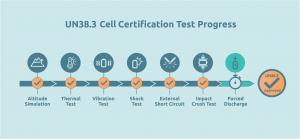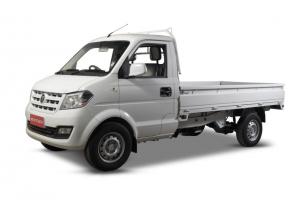Magnis' lithium-ion battery plant iM3NY recieves certification for its batteries
Batteries produced by iM3NY have officially received UN/DOT38.3 certification
Magnis Energy Technologies (OTCQX:MNSEF)
SYDNEY, NSW, AUSTRALIA, June 15, 2023/EINPresswire.com/ -- • Batteries produced by iM3NY have officially received UN/DOT38.3 certification
• UN38.3 certification is an internationally recognised standard established by the United Nations for the transportation of lithium-ion cells
• iM3NY cells are now permitted to be transported within the United States and internationally
• All seven tests were completed successfully with all cells used in the testing process compliant
Magnis Energy Technologies Ltd (“Magnis”, or the “Company”) (ASX: MNS; OTCQX: MNSEF; FSE: U1P) is pleased to announce lithium-ion batteries produced at the iM3NY Battery Plant have received UN38.3 certification. Magnis is the major shareholder of iM3NY.
All cells were compliant with the various tests undertaken and certification can only be achieved if all cells are one hundred percent compliant.
Regulated industries such as energy (lithium-ion battery cells), pharmaceutical, specialty chemicals and similar critical-use sectors require certification. iM3NY cells having complied with UN38.3/US DOT is a significant milestone. After receipt of the official certification, iM3NY cells are now permitted to be transported by land, sea and air both locally and internationally.
UN/DOT 38.3 Transportation Testing Overview
Lithium cells are classified as dangerous goods and can pose a safety risk if not tested and packaged in accordance with the transport regulations. UN/DOT 38.3 testing helps ensure the safety of lithium ion or lithium metal cells during shipping.
The transport of lithium cells is subject to national and international regulations as detailed by the UN (United Nations) in the U.N. Manual of Tests and Criteria, Sub-section 38.3 (UN 38.3, UN International Air Transport Association (IATA), and the United States DOT (Department of Transportation) which defines shipping regulations for the U.S. under 49 CFR, Sections 100 – 185.
UN/DOT 38.3 details environmental, mechanical, and electrical requirements for all lithium-ion cells and batteries. Manufacturers of lithium batteries and products using lithium cells must demonstrate compliance in the design, manufacturing, and distribution of their products.
UN38.3 CERTIFICATION PROCESS
The UN38.3 certification process involves a series of tests that are designed to simulate the conditions that the cells may be exposed to during transportation.
These tests include:
T1. Altitude Simulation: Low pressure testing that simulates unpressurised airplane cargo area at 15,000-meter altitude. After storing cells at 11.6kPa for >6 hours, these criteria shall be met: no mass loss, leaking, venting, disassembly, rupture or fire, and voltage within 10% of pre-test voltage.
T2. Thermal Cycling: The test covers changes in temperature extremes from -40C to +75C. Cells are stored for 6 hours at -40C (12 hours for large cells/batteries), then 6 hours at +75C (12 hours for large cells/batteries), for a total of 10 cycles. T2 tests the cell seal integrity and internal connections.
T3. Vibration: Test simulates vibration during transportation. The test is a Sine Sweep: 7Hz – 200Hz – 7Hz in 15 Minutes; 12 Sweeps (3 hours); 3 mutually perpendicular axes.
T4. Shock: Test robustness of cell under cumulative shock during transportation. Test is a Half- Sine pulse: 50g/11ms for large cells/batteries; 3 pulses per direction; 6 directions (+/-z, +/-x, +/- y).
T5. External Short Circuit: This test simulates an external short circuit to the terminals of the cell or battery. At temperature of +57C, apply short circuit (<0.1ohm) across terminals. Maintain at least an hour after sample temperature returns to +57 +/-4°C. Pass criteria are: Case temperature does not exceed +170°C and no disassembly, rupture, or fire within 6 hours of test. Fuse, current limiting circuit, and venting mechanism activation are allowable.
T6. Impact: This test simulates mechanical abuse from impact or crush.
T8. Forced Discharge: A sample is forced discharged at ambient temperature at an initial current equal to the maximum discharge current specified by the manufacturer and for a calculated time interval.
Magnis Managing Director (USA) Hoshi Daruwalla commented: “Today’s news is significant as our batteries have met the strict safety requirements developed by the United Nations for transportation.”
“Magnis is grateful to our informed and loyal shareholders who appreciate the steps needed in the commercialisation journey of lithium-ion cell manufacturing.”
COMBO STORY FOR MEDIA USE - Aussie-backed Lithium-Ion Batteries Set to Power Electric Vehicles in India
Group Communications Manager
Magnis Energy Technologies
+ +61 426 042 590
email us here
Visit us on social media:
Twitter
LinkedIn
Legal Disclaimer:
EIN Presswire provides this news content "as is" without warranty of any kind. We do not accept any responsibility or liability for the accuracy, content, images, videos, licenses, completeness, legality, or reliability of the information contained in this article. If you have any complaints or copyright issues related to this article, kindly contact the author above.



